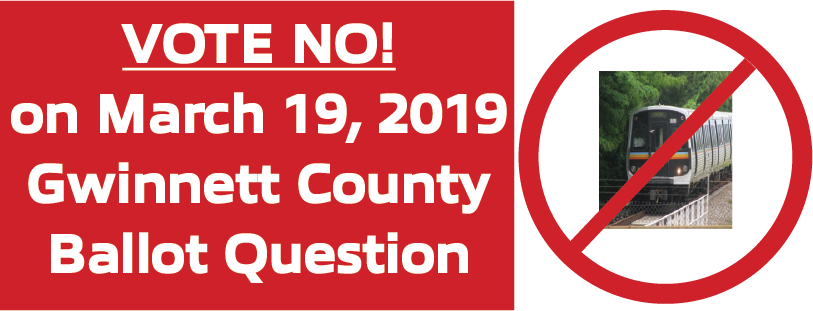Gwinnett MARTA Vote, Hard Questions Need To Be Asked
There are still a lot of unanswered questions about exactly what the citizens of Gwinnett will be getting when they go to the polls to vote “Yes” or “No” on approving the only agreement signed between county officials and MARTA. Other contracts are yet to be written and agreed upon. Who will financially benefit from the contracts? In order to meet the transit goals proposed, what zoning laws and building codes will be changed to drive the economic development to these transit oriented locations and how will this impact other property values? If the citizens vote “Yes”, they are signing up for a permanent tax increase for the next 50 year with a lot of open questions. There’s no assurance that other taxes will not need to be raised in order to pay for ongoing maintenance. The voters have not been provided a cost per rider or cost/benefit analysis. What are the metrics for measuring success?
What happens if this Gwinnett transit plan becomes “too big to fail” and more and more money must be sunk into an aging system? Private enterprise solutions and exciting new technologies are on the horizon. For the amount of money proposed to be raised, there are other solutions the county could implement that don’t give up their autonomy. More importantly, is the county giving up its local control to un-elected and unaccountable regional boards and agencies that are difficult to remove? MARTA has a responsibility to shore up funding for the existing MARTA system which is continually underutilized and operating at significant losses from year to year. In essence, the voters need to ask themselves, will transportation problems in another county become Gwinnett’s problem? What is the exit strategy for Gwinnett if this goes sideways?

Leave a Reply